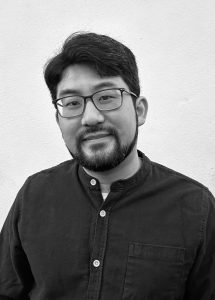I am Lecturer in Sociology at the School of Social Science, Education, and Social Work, Queen’s University Belfast.
I joined Queen’s in 2021. I am also a Fellow of the Mitchell Institute (Legacy Thematic Group). Previously, I was a British Academy Postdoctoral Fellow at the Department of Sociology, University of Cambridge (2017-21) and a Research Fellow in Sociology at Murray Edwards College, University of Cambridge (2018-21). I hold a PhD in Sociology (2017) from the University of Cambridge.
I am a cultural sociologist of violence. My research straddles multiple areas including cultural sociology, political sociology, memory studies, sociology of religion, and social theory.
I’m interested in how individuals, groups, and institutions make sense of violent events including wars, terrorism, and colonialism through processes such as commemorative acts, art, media reports, and social activism. I research how actors engage in meaning-making processes through narratives and how different stakeholders construct multiple and conflicting accounts of the same event.
For the past few years, I have been researching the Japanese far-right’s denial of atrocities committed under Japanese colonialism and during World War Two: a movement known as ‘historical revisionism’ which emerged in the 1990s. I also have a developing research project on the Myanmar government’s denial of the Rohingya Genocide.
My first monograph, Aum Shinrikyo and religious terrorism in Japanese collective memory (Oxford University Press, 2022), reconstructs the long-term consequences of Aum Shinrikyō’s crimes and terrorist attacks that culminated in the deadly sarin gas attack on the Tokyo subway in March 1995. Described as ‘a definitive account of a famous modern Japanese tragedy’, this book explores how the Aum Affair developed as a ‘cultural trauma’ in Japanese collective memory following the Tokyo attack. Interrogating an array of sources including mass media reports and interviews with victims and ex-members, it reveals the multiple clashing narratives about the causes of Aum’s violence, the efficacy of ‘brainwashing’ and ‘mind control’, and whether capital punishment is justified. The book shows that the entrenchment of binary codes like ‘good-evil’ and ‘victims-perpetrators’ in commemorative processes can ultimately hinder social repair and reconciliation. The book has been positively reviewed in journals including Social Forces and Nova Religio.
As a social theorist, I have peer-reviewed publications including work on ‘existence theory’ (with Patrick Baert and Marcus Morgan), power and domination, and postcolonial theory.
I originally started my research in sociology of religion and I maintain an active interest in topics including new religious movements, Japanese religions, and religious nationalism.
My publications have appeared in numerous peer-reviewed journals including The Sociological Review, The British Journal of Sociology, Theory and Society, American Journal of Cultural Sociology, Memory Studies, Journal of Political Power, Journal of Classical Sociology, and International Journal of Politics, Culture, and Society.
I am currently a Co-Editor of Cultural Sociology, and an Editorial Board Member for the International Journal of Politics, Culture and Society
